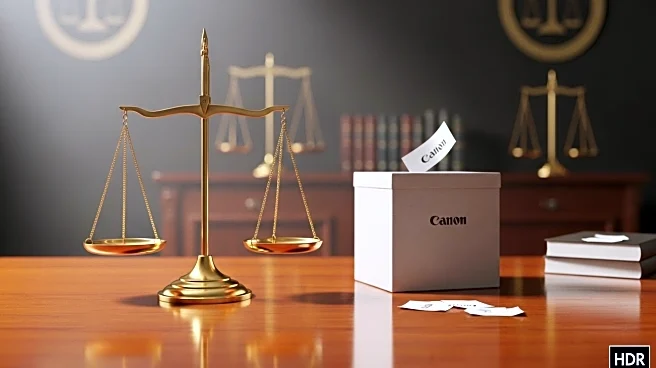What's Happening?
The Supreme Court is set to hear arguments regarding a lawsuit challenging an Illinois law that permits the counting of mail-in ballots received up to two weeks after Election Day. This case, initiated by Republican Rep. Michael Bost and two presidential electors, questions the legality of extending the voting period beyond the federally mandated timeframe. Lower courts previously dismissed the lawsuit, citing a lack of standing, as the plaintiffs could not demonstrate direct harm from the policy. The Supreme Court's decision to hear the case could potentially lead to a surge in legal challenges to election laws across the country.
Why It's Important?
The outcome of this case could have significant implications for election laws nationwide. If the Supreme Court rules in favor of Bost, it may set a precedent allowing more lawsuits challenging election procedures, potentially altering how elections are conducted and contested. This could impact the balance of power in future elections, as mail-in voting has been a contentious issue, particularly among Republicans who argue it could lead to voter fraud. Conversely, Democrats and voting rights advocates argue that mail-in voting increases accessibility and participation. The decision could influence how states design their voting laws and manage election logistics.
What's Next?
Should the Supreme Court rule in favor of Bost, it could open the door for numerous lawsuits challenging various election laws, potentially leading to significant changes in how elections are conducted. States may need to reassess their voting procedures to avoid legal challenges. Additionally, the ruling could influence political strategies, as parties may need to adapt to new voting regulations. The decision is likely to be closely watched by political leaders, election officials, and civil rights groups, all of whom have a vested interest in the outcome.









